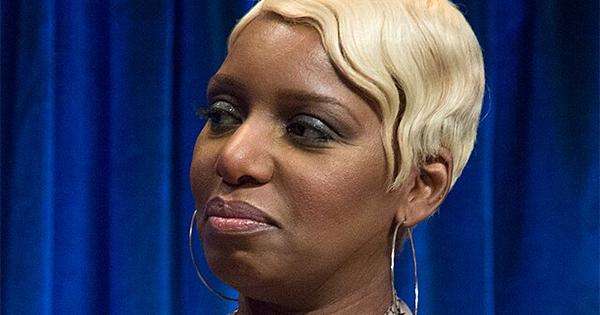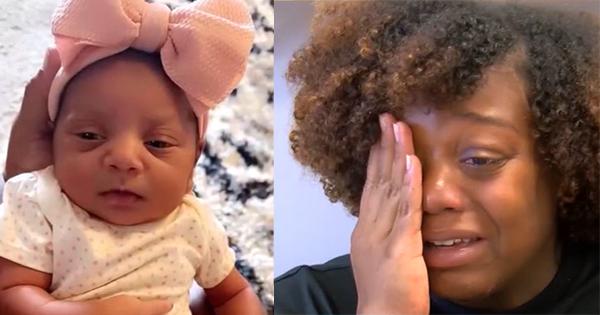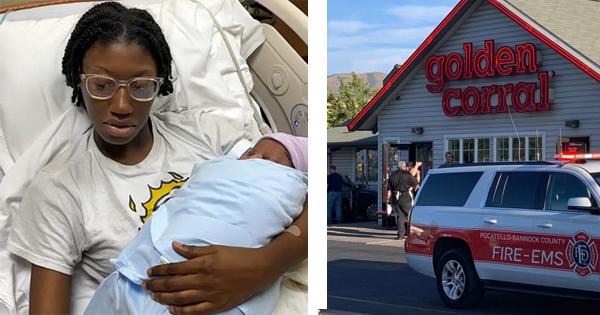Prince George’s County, MD — Today, Monday, May 11, 2015, in the Circuit Court for Prince George’s County Maryland, the Plaintiff, Jimmy A. Bell, Esq., filed a lawsuit against Defendant International House of Pancakes, LLC or (IHOP) and Defendant Hospitality Management of Capitol Heights, Inc. (a.k.a.) IHOP franchise for color and race discrimination and Negligence (failure to train and failure to supervise) it’s employees/agents. The lawsuit seeks compensatory and punitive damages to be determined by a jury.
1. According to the lawsuit, on Thursday, March 12, 2015 at 10:08 PM, Mr. Bell visited IHOP (located at 9003 Central Ave., Capitol Heights, MD 20743) to get a big steak omelet, a stack of pancakes with extra butter, melted, with some hash browns, a large milk and an orange juice.
2. That Mr. Bell knew based on their store hours posted on the internet and their front door that this IHOP location did not close until 11pm.
3. That when Mr. Bell walked in, there were many people in one section of the restaurant. That Mr. Bell stood and waited at the podium in the front for three to five minutes.
4. That a light‑skinned man in a blue shirt (the store manager) approached Mr. Bell. That Mr. Bell was not sure and still is not sure if the store manager was African American, Cuban or Afro-Hispanic.
5. That Mr. Bell does not know which nationality or ethnic group the store manager is a member. That the store manager finally approached Mr. Bell
and said, “Can I help you.” That Mr. Bell then said, “Yes. A table for one?”
6. That the manager replied, “We’ʹre not serving dine-‐‑in. Only carryout.”
7. That Mr. Bell then said, “With all these people in here, they are still ordering. I’m just one person.”
8. That the manager answered, “We’ʹre not doing that; you are not dining in here.” That Mr. Bell asked the manager, “So, you’re denying me dine‑in sit down service? That the manager responded, “Yes.”
9. That Mr. Bell asked the manager, “Where is it posted on the door that you are no longer servicing dine-in sit down service?” That the manager responded, “It’s not there!” That Mr. Bell then asked the manager, “Where is your policy that states that at a certain times you don’t do sit down service, but carryout only? That the manager responded, “It’s not there, but I said so and I am the manager?” That Mr. Bell stated to the manager, “That is illegal because you have a license for a dine-in restaurant.” The manager responded, “It’s not illegal. I know. I’m a lawyer. ” That Mr. Bell asked, “You’re a lawyer? I’ʹve never seen you before and I have been practicing law in this area for over 15 years. You’re a lawyer where? Where are you bared?” That the manager answered, “I’m a lawyer in Florida.” That Mr. Bell asked, “But you’re not licensed to practice law in Maryland?” That the manager answered in then admitted that he was not licensed to practice law in the State of Maryland, replying “No”.
10. That Mr. Bell then said, “So what you did was just commit a crime, because you held yourself out to be a lawyer. And in Maryland, in order to be a lawyer, you must be licensed to practice law in the State of Maryland. And you are not. You just admitted that you are not. So please write down on a piece of paper, your name, title and why you denied me dine-in sit down service and a name and number to allow me to talk to a supervisor of yours, because this conversation between you and me is not going to be fruitful.” That as the manager was leaving to go to the register, he grunted “You darkeys always trying to get over on something.”
11. That as a 46 year old man, Mr. Bell knows the customary and historical usage of the word “darkey.” That “darkey” is a disparaging term for a black person, a racial slur. That as far as Mr. Bell and many Americans of good conscience are concerned, calling someone a “darkey” is essentially the same as calling one a “nigger.”
12. That the manager – in calling Mr. Bell a “darkey”, as he was denying Mr. Bell dine-in sit down service - was behaving in a racially derogatory, highly offensive manner at a public accommodation.
13. That the manager of IHOP was engaging in racial discrimination at a public accommodation. That Mr. Bell – outraged and offended – asked the manager, “What did you just say?” Who are you talking to?” That the manager did not respond. That the manager did not deny what he had just said to Mr. Bell. That the manager did not apologize for what he just said to Mr. Bell. That Mr. Bell then asked the manager to repeat what he had just said. That Mr. Bell asked then asked the manager to write down what he had just said to Mr. Bell.
14. That Mr. Bell, who has been an advocate for so many others who have been confronted with various forms of discrimination, knew at this point that he himself was being was being discriminated against. He realized that he had been denied sit down service because of his skin color (dark skin)/race (black).
15. That the store manager only provided Mr. Bell with a handwritten note containing his name, the store number, and a brief statement admitting that he told Mr. Bell he was a lawyer and he was bared in Florida.
16. That Mr. Bell then asked a customer who a little ways behind him, “Did you just hear that?” That the customer said, “Yes.” That Mr. Bell asked the customer if he would be willing to provide Mr. Bell with his contact information. That the bystanding customer declined, saying, “I don’ʹt want to get involved in this.”
17. That the manager, a fairer light skinned individual, was denying Mr. Bell dine-in sit down service, in this majority black community because Mr. Bell is a darker-skinned individual.
18. That Mr. Bell called a customer service representative on the IHOP 1-800 number as soon as he walked to his car. That Mr. Bell told the customer
service representative that the IHOP manager claimed to be a lawyer when he was not and she kept cutting him off. That the customer service representative would not allow Mr. Bell to finish explaining what happened.
That the representative was not sympathetic to Mr. Bell’s complaint, and the conversation ended before Mr. Bell was able to mention that the manager had discriminated against him and denied him service because of his skin color.
19. That on the following day, Friday, March 13, 2015, Mr. Bell talked to Max Pinneda, the regional manager of IHOP and detailed to him what had occurred and asked him to watch the video tape and see for himself what happened and to investigate if the manager has been denying other blacks in
this majority black area from dine-in sit down service.
20. That Mr. Pinneda, admitted that the manager, was not hired by IHOP to serve as a lawyer. That Mr. Pinneda stated that the individual had been
originally hired as a restaurant server and had subsequently been promoted to a manager position. That Mr. Pinneda admitted that the manager has no attorney-related responsibilities for IHOP.
21. That on Saturday, March 14, 2015, Mr. Bell spoke again to Max Pinneda. That Mr. Pinneda told Mr. Bell that he had viewed the video tape and saw what had transpired. That Mr. Pinneda told Plaintiff that the manager violated company policy by denying dine-in sit down service to Plaintiff and other black IHOP patrons. That Mr. Pinneda stated that the IHOP store the manager admitted that he was wrong and that he violated company policy by denying dine-in sit down service to Plaintiff and other black IHOP patrons.
22. That Mr. Bell explained to Max Pinneda the historical discriminatory context of restaurants telling blacks patrons that they may order takeout but could not sit down to eat and that the above-‐‑described discrimination was an instigating force behind sit-ins during the civil rights movement.
23. That Mr. Bell asked Pinneda if he could name one IHOP in a majority white area where white customers are told that they can order carryout but they cannot sit down and eat in the IHOP restaurant.
24. That Pinneda, stated that he could not think of such an IHOP.
25. That according to the job description of a server as described in the very own words of IHOP, “the main job responsibility is to provide customers with a hundred percent customer service excellence.” That according to an IHOP public job opening ad, “servers are basically in the front line since they will be the one welcoming and serving the customers. That the IHOP job ad also says, “As long as you have the right attitude and you are at least sixteen years of age, you can qualify for a Server position at IHOP.”
26. That according to the Operating Procedures And Standards for IHOP franchises, “Franchisees shall operate their restaurants in strict compliance
with local, state, and federal laws and regulations.” That franchises, according to this document, are also required to “operate their restaurants
(an “IHOP Restaurant”) in strict compliance with their franchise documents and the Standard Operating Procedures (SOP) of the International House of Pancakes, LLC. ( “IHOP”). That all IHOP, under its Operating Procedures and Standards, requires all franchises be open and operating according to
specified hours each day. That the hours of operation, according to the Operating Procedures and Standards, must be posted in public view from the outside of the building.
27. That, according to the Operating Procedures and Standards, if an IHOP Restaurant is not open for business during the required hours, the Regional Vice President must be notified of the reason for closure of the Restaurant.
28. That no Franchisee, according to the Operating Procedures and Standards, is authorized to operate fewer than the minimum hours without written approval from the President of IHOP. That the Operating Procedures and Standards do not authorize franchises to close down dine-in service before the restaurant is closed.
29. That the actions of Defendants - in failing to follow Maryland law anti-discrimination law and their own company policies regarding dine-in sit down service followed by intentionally concealing this error in the form of an unwritten policy – clearly demonstrates malicious intent, discriminatory intent, and ill will.
30. That Mr. Bell explained to Max Pinneda, the area manager, that IHOP – in calling Mr. Bell a “darkey” and denying sit down service to him and other black patrons, especially at an IHOP franchise located in a predominantly black community – amounted to gross discrimination and created a very hurtful experience to Mr. Bell, insulting his dignity and self worth. That Mr. Bell explained that if left unchecked, the actions of IHOP could lead to greater discrimination. That Mr. Bell also reminded Max Pinneda that on their website, IHOP states, “We value the communities in which we do
business…” That Mr. Bell asked Max Pinneda how IHOP could possibly value this majority black community if it treats the customers as if they were living in the 1950’s.
31. That Mr. Bell asked Max Max Pinneda what was worse: the manager calling Mr. Bell a “darkey” or treating him like one. That Pinneda had no response.
32. That Pinneda stated that he would talk to the manager again but that the manager was going to remain employed by IHOP as a manager at that same location. So, the Defendants ratified the manager’s behavior, according to the lawsuit.
33. Mr. Bell asked Mr. Pinneda for the name and telephone number for the owner of Defendant Hospitality Management of Capitol Heights, Inc. (a.k.a.) IHOP and Mr. Pinneda told Mr. Bell that he had talked to the owner (Geoffrey Trout, a white man) and kept him informed about the situation and the he, Mr. Pinneda, speaks for the owner in this matter.
34. That Mr. Pinneda then offered Mr. Bell a few coupons for free meals at IHOP. That Mr. Bell declined the coupons and informed Pinneda that he would be filing a discrimination complaint against IHOP.
PRESS CONTACT:
Jimmy A. Bell, Esq. (301) 661-1165
Derrick G. Hamlin, Esq. (410) 637-3001









